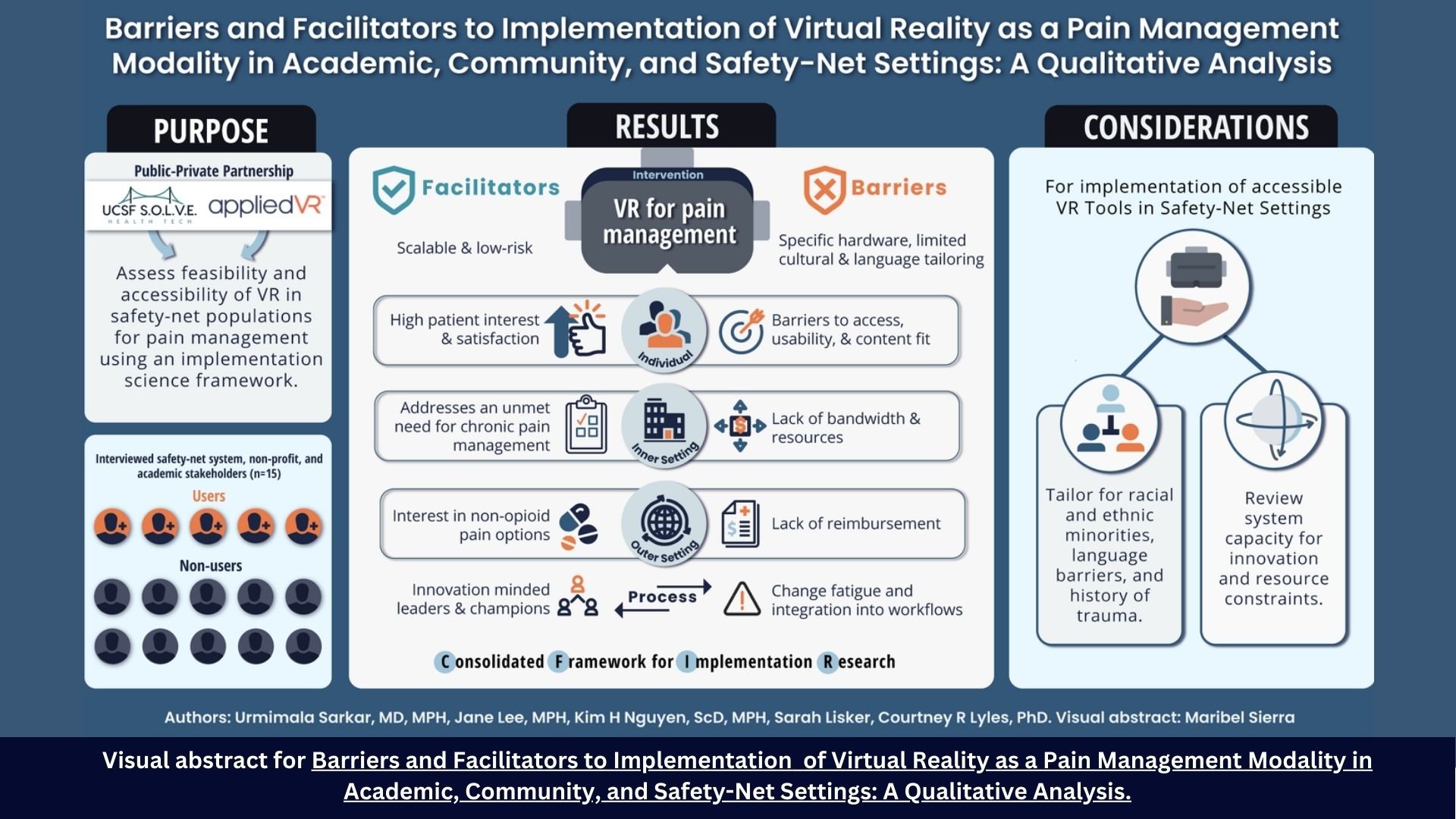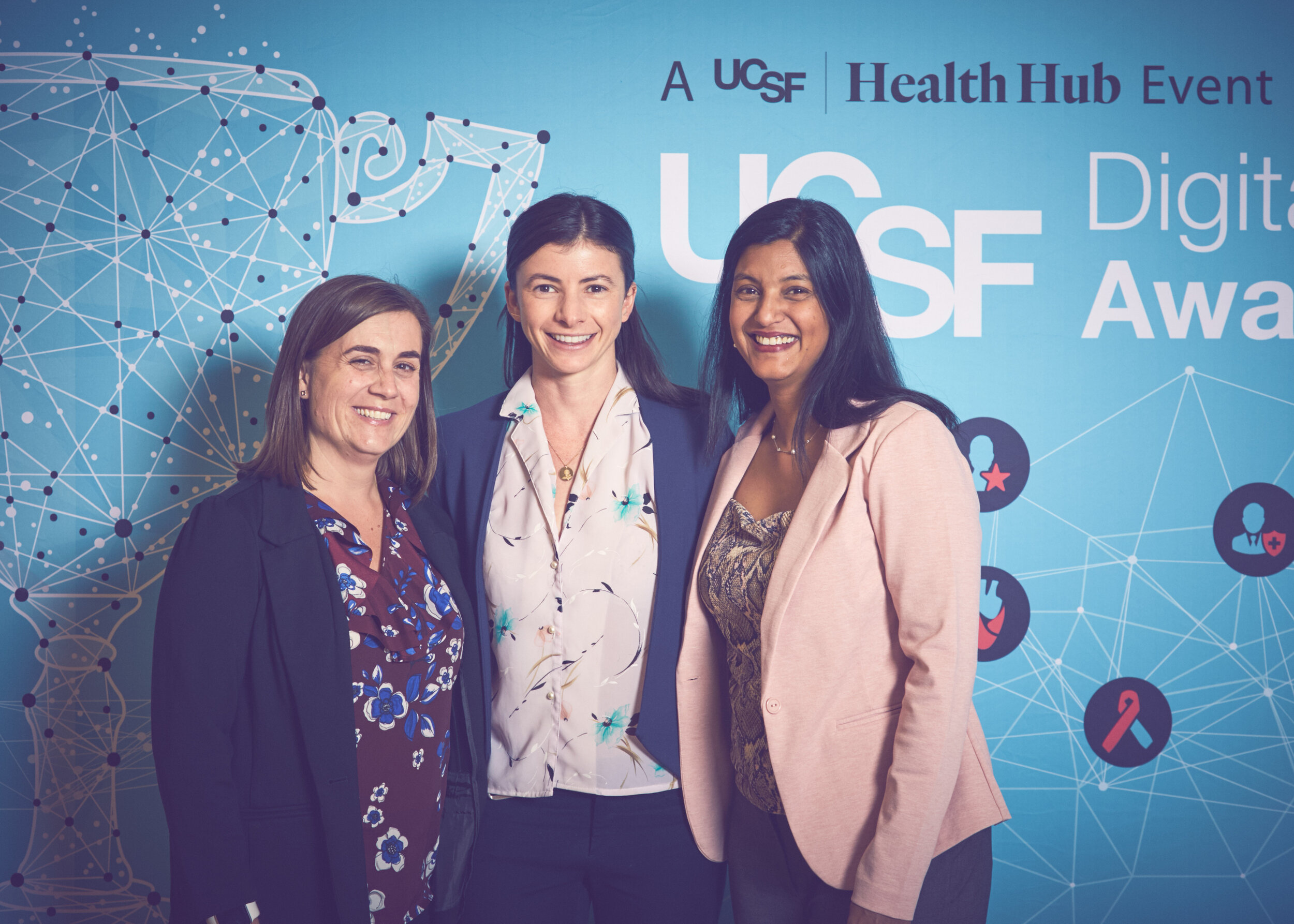Digital Health
Overview
For technology to truly revolutionize health, digital tools must work for diverse populations.
Our research demonstrates that there are disparities in current use of health information technologies by race and ethnicity as well as health literacy, suggesting that existing technologies and related polices are not equitable. This has sparked our efforts to make digital health innovations more inclusive, such as by partnering directly with digital health companies to improve the accessibility of their products as well as evaluating use and uptake of digital health tools in safety-net health care settings.
Current Projects
INSPIRED
The purpose of this trial is to evaluate patient-level and clinic-level strategies to increase implementation of self-measured blood pressure (SMBP) monitoring programs with clinical support. SMBP monitoring is an evidence-based, guideline-recommended practice that is most effective when combined with clinical support. However, SMBP monitoring with clinical support has had limited adoption in many safety net clinical settings due to multi-level barriers. In response, Dr. Elaine Khoong and her team are working with patients and clinics to co-design implementation strategies to increase SMBP monitoring tailored with safety net patients and clinicians. The trial will take place at two SF clinics and four Alameda Health System-based clinics. Patients will be enrolled and use cellular-enabled BP monitors for 12 months. Clinical champions at each clinic site will be trained as well.
UCSF S.O.L.V.E. Health Tech
The purpose of this program is to make digital health products more equitable by partnering directly with digital health companies. Despite billions of dollars invested in the digital health industry annually, we have not yet seen a meaningful, sustained reduction in health care expenditures or equitable improvement of health outcomes. This is because very little of the robust private investment in digital health goes to companies led by members of historically excluded groups, and privately developed digital health products rarely focus on marginalized populations. In response, Dr. Sarkar and Dr. Courtney Lyles founded UCSF S.O.L.V.E. Health Tech, the nation’s first health equity incubation partner dedicated to bridging innovation in the private sector with the needs of patients often excluded from digital health design, development, and implementation.
Selected Completed Digital Health Projects



Digital Health Presentations
Dr. Khoong discusses Implementation of Digital Health Interventions For Safety Net Populations
Dr. Khoong discusses implementation of digital health interventions in safety net settings, including barriers to implementation, multilevel determinants to digital health equity, telemedicine adoption and implementation, and use of digital tools to bridge the gap for patients with language barriers.
Dr. Sarkar discusses UCSF S.O.L.V.E. Health Tech's Role in Addressing Digital Health Needs for Medicaid and Vulnerable Populations
Dr. Sarkar has spoken about this disconnect between health offerings and the real-world needs of patients at venues such as South by Southwest. She serves on the expert council of HealthTech 4 Medicaid and the advisory board of the UCSF Health Hub.
Dr. Sarkar presenting at the UCSF Digital Health Awards (photo credit: The Vanity Portrait Studio)
Dr. Lyles, Sarah Lisker, and Dr. Sarkar at the UCSF Digital Health Awards (photo credit: The Vanity Portrait Studio)



